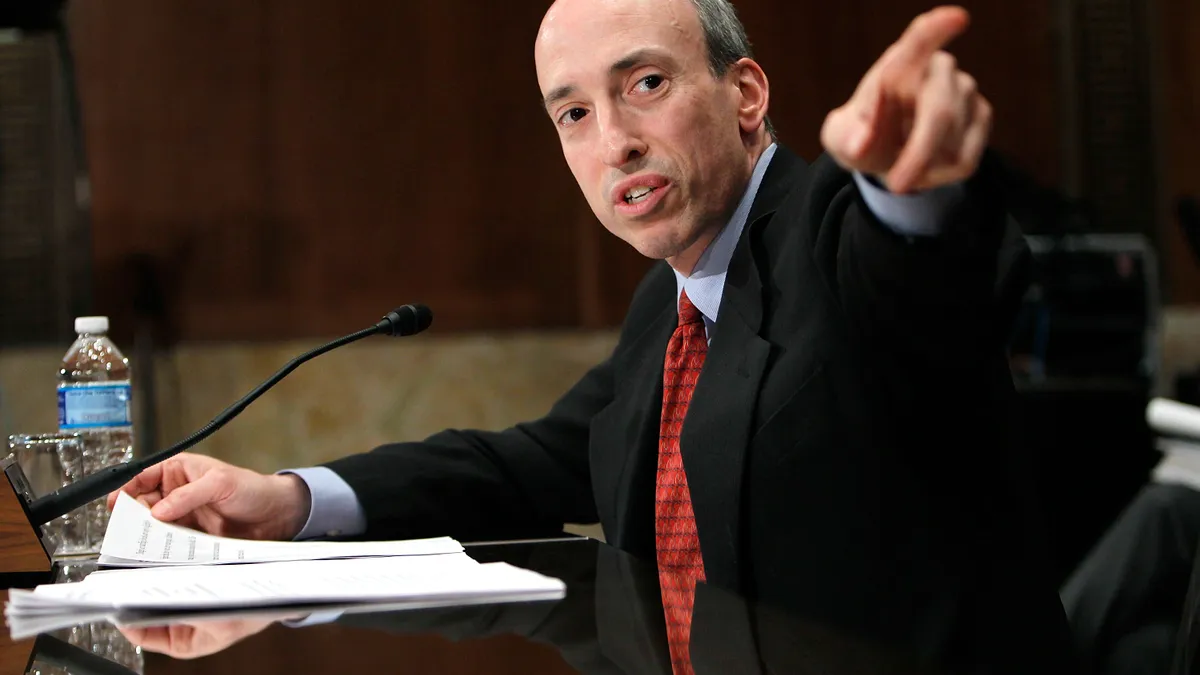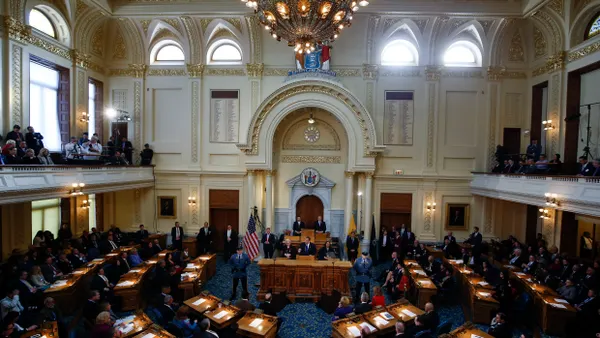Dive Brief:
- Securities and Exchange Commission Chair Gary Gensler, warning of potential fraud, pledged tough scrutiny of how special purpose acquisition companies (SPACs) raise cash from the public and merge with target companies.
-
The SEC’s corporate finance, examinations and enforcement divisions will “be closely looking at each stage to ensure that investors are being protected,” Gensler said in testimony to a House subcommittee, adding “each new issuer that enters the public markets presents a potential risk for fraud or other violations.”
- The SEC this year has received 700 filings from such shell companies seeking to go public, and 300 have been completed, Gensler testified yesterday to the subcommittee on financial services and general government, calling the number of filings an “unprecedented surge.”
Dive Insight:
The SEC slowed the market for SPACs earlier this year when staff accountants released a memo saying that warrants attached to SPAC shares should be treated as liabilities rather than as equity. The agency approved only 13 SPACs last month compared with 109 in March.
In order to comply with the new guidance, SPAC sponsors need to hire accountants and auditors to value the warrants each quarter using a complex calculation. When treating warrants as equity, sponsors make a simpler, up-front calculation.
“The surge in SPACs” has raised several policy questions, Gensler said.
“First and foremost, are SPAC investors being appropriately protected?” he asked. Retail investors should receive “appropriate and accurate” information when investing in SPACs and when the entity merges with a target company.
A SPAC — or what Gensler called a “blank-check” initial public offering — provides private companies with a quicker, cheaper alternative to traditional IPOs. A SPAC raises money by selling shares, which it lists on a stock exchange. It then merges with a private company.
“How do SPACs fit into our mission to maintain fair, orderly and efficient markets?” Gensler asked. “It could be the case that SPACs are less efficient than traditional IPOs.”
Gensler cited a finding that SPAC sponsors “generate significant dilution and costs,” usually receiving 20% of shares as a “promote.” Also, first-stage investors can redeem shares when they find a target company for merger, “leaving the non-redeeming and later investors to bear the brunt of that dilution.”
Gensler also affirmed his view that regulators should ensure safeguards for investors in cryptocurrencies, and pledged to work with Congress and other regulators to create adequate oversight.
“There are many challenges and gaps for investor protection in these markets,” he said, warning of potential “fraud and manipulation.”
“Tokens currently on the market that are securities may be offered, sold and traded in non-compliance with the federal securities laws,” Gensler said.













